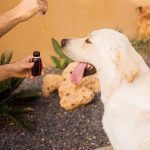THCA-infused edibles, which are THCA's non-psychoactive precursor to THC, are emerging as therapeutic options with benefits including anti-inflammatory, analgesic, and neuroprotective effects. These edibles, now widely available for sale, offer delayed onset and long-lasting effects, necessitating careful dosage to avoid overconsumption and its potential side effects. Given individual differences in metabolism and the impact on the endocannabinoid system, it is crucial for new users to start with a low dose, especially if they have sensitive constitutions or specific health concerns. Safety and transparency are essential when selecting THCA infused edibles; consumers should only purchase from reputable sources that clearly label dosage and ingredients to make informed decisions. As the market for cannabinoid-based products grows, the variety of THCA infused edibles for sale is expected to expand, providing a range of consumption options like gummies, chocolates, capsules, and beverages for sustained relief without psychoactive effects. Legal status and health considerations should also be taken into account, making sure to follow regional laws and seek medical advice before incorporating these edibles into one's health regimen.
exploring the emerging landscape of cannabinoid compounds, this article delves into the lesser-known THCA flower and its potential side effects when consumed in edible form. As THCA infused edibles become increasingly available, understanding their distinct impact compared to THC is crucial. We will dissect the science behind THCA, its therapeutic benefits, and the role of edibles in medication, while also addressing safety concerns and side effects to ensure responsible use. Join us as we navigate the nuances of THCA and its implications for consumers seeking natural remedies or alternative wellness options.
- Unveiling THCA Flower: Potential Effects and Considerations Before Consuming THCA Infused Edibles for Sale
- The Science Behind THCA: Understanding Its Distinction from THC and Implications for Consumers
- Exploring the Therapeutic Applications of THCA Flower and the Role of Edibles in Medication
- Navigating Safety and Side Effects: Ensuring Responsible Use of THCA Infused Edibles
Unveiling THCA Flower: Potential Effects and Considerations Before Consuming THCA Infused Edibles for Sale

Before incorporating THCA-infused edibles into your regimen, it’s crucial to understand the potential effects and considerations associated with this cannabinoid. THCA, or tetrahydrocannabinolic acid, is the raw, non-psychoactive precursor to the more well-known compound THC (tetrahydrocannabinol). As research continues to unfold, anecdotal reports and scientific studies suggest that THCA may offer a range of therapeutic properties. These potential benefits include anti-inflammatory, analgesic, and neuroprotective effects, which could be beneficial for various health conditions. However, it’s important to approach THCA infused edibles with caution due to individual differences in metabolism and the overall impact on the endocannabinoid system.
The consumption of THCA infused edibles should be approached with a clear understanding of dosage, as the effects can vary significantly from person to person. Edibles are known for their long-lasting effects because they must first pass through the digestive system before entering the bloodstream. This process can lead to a delayed onset of effects, which may catch an uninformed consumer off guard. Additionally, the potency of THCA edibles for sale can be influenced by factors such as dosage per unit, the quality of the cannabis used, and individual biochemistry. It’s advisable to start with a low dose to gauge individual sensitivity and effects, especially if one has a sensitive constitution or specific health considerations. Always source THCA infused edibles from reputable vendors who provide clear labeling regarding dosage and ingredient lists. This due diligence ensures that consumers can make informed decisions about their consumption and potential health implications.
The Science Behind THCA: Understanding Its Distinction from THC and Implications for Consumers

Delta-9-tetrahydrocannabinolic acid (THCA) is the non-psychoactive precursor to delta-9-tetrahydrocannabinol (THC), the primary psychoactive component of cannabis. While both compounds interact with the endocannabinoid system within the human body, their distinct molecular structures lead to different effects and therapeutic potentials. THCA is found in raw cannabis plants or cannabis that has not been exposed to heat or light, which converts THCA into THC. This distinction is significant for consumers as it influences the experiences and benefits derived from cannabis products.
The science behind THCA’s distinct properties is rooted in its interaction with various receptors within the endocannabinoid system, particularly the CB1 and CB2 receptors. Unlike THC, THCA does not bind directly to these receptors but may influence their activity indirectly. This has led researchers to explore potential therapeutic applications of THCA, including its anti-inflammatory, neuroprotective, and anti-nausea properties. For consumers interested in the therapeutic benefits without the psychoactive effects associated with THC, THCA infused edibles for sale offer a unique alternative. These products are carefully formulated to preserve THCA in its natural state, allowing users to experience the potential wellness benefits without the intoxicating effects of THC. As the market for cannabinoid-based products continues to evolve, the availability and variety of THCA infused edibles for sale are expected to increase, providing consumers with more options to suit their needs.
Exploring the Therapeutic Applications of THCA Flower and the Role of Edibles in Medication

The therapeutic applications of THCA flower, the raw form of tetrahydrocannabinolic acid, a prominent cannabinoid found in the Cannabis sativa plant, have garnered significant attention within the medical community and among patients seeking alternatives to traditional pharmaceuticals. THCA is non-psychoactive, which means it offers potential health benefits without the psychoactive effects associated with its decarboxylated form, THC. This has led to a growing interest in the medicinal properties of THCA, particularly for conditions such as inflammation, nausea, and neuropathic pain. Research is ongoing to further elucidate these benefits, but preliminary studies suggest that THCA may have neuroprotective and anti-inflammatory effects, making it a subject of interest for various neurological and inflammatory disorders.
For those who prefer or require a more measured approach to cannabinoid therapy, THCA infused edibles represent a viable option. These edibles are carefully formulated to deliver precise doses of THCA, allowing users to ingest the cannabinoid in a consistent and controlled manner. The market for THCA infused edibles for sale has expanded significantly, offering a variety of products ranging from gummies and chocolates to capsules and beverages. This evolution in product offerings caters to individuals seeking the potential health benefits of THCA without smoking or vaporizing the flower. Edibles provide a discreet, long-lasting alternative that can be easily integrated into daily routines for sustained relief from various symptoms. As with any medication, it is important to start with a low dose to gauge individual sensitivity and effects, and to consult with a healthcare professional before incorporating THCA infused edibles into one’s regimen.
Navigating Safety and Side Effects: Ensuring Responsible Use of THCA Infused Edibles

When incorporating THCA-infused edibles into one’s wellness regimen or recreational use, it is imperative to approach consumption with caution and knowledge. THCA, or Tetrahydrocannabinolic Acid, is the raw form of THC (Tetrahydrocannabinol), the primary psychoactive component found in cannabis. As THCA infused edibles for sale become more prevalent, understanding their effects and potential side effects becomes crucial for safe and responsible use. These products can offer various benefits, but like any consumable, they come with a set of guidelines to ensure user safety.
Before indulging in THCA-infused edibles, it is essential to familiarize oneself with the product’s dosage instructions. Manufacturers often provide recommended serving sizes that should not be exceeded without professional advice. The onset of effects from edibles can take longer than traditional smoking or vaporizing methods, often taking anywhere from 30 minutes to 2 hours to fully manifest. This delay in effect can lead to accidental overconsumption if users are not patient and mindful of the timing. Side effects may include dizziness, lethargy, anxiety, and paranoia, particularly among novice users or those who consume more than their tolerance level allows. It is also important to note that individual responses to THCA can vary significantly based on metabolism, body chemistry, and personal sensitivity. Therefore, it is advisable to start with a low dose and gradually increase it as one becomes accustomed to its effects. Additionally, users should be aware of the legal status of THCA-infused edibles in their region, as laws regarding cannabis products can vary widely. Always procure THCA infused edibles for sale from reputable sources that provide clear labeling and dosage information to ensure a safe and enjoyable experience.
In conclusion, THCA infused edibles for sale represent a promising frontier in the realm of cannabinoid-based wellness and medicine. As explored throughout this article, THCA’s potential effects distinguish it from its psychoactive cousin THC, offering consumers a variety of therapeutic applications without the intoxicating high. However, as with any substance, it is crucial to approach THCA infused products with caution, considering their side effects and interacting with other medications. Users should prioritize safety, adhere to recommended dosages, and purchase from reputable sources. By doing so, they can make informed decisions about incorporating these edibles into their health regimen. With further research and regulatory oversight, the benefits of THCA infused products may be fully realized, potentially offering relief for a myriad of conditions and enhancing overall well-being.


